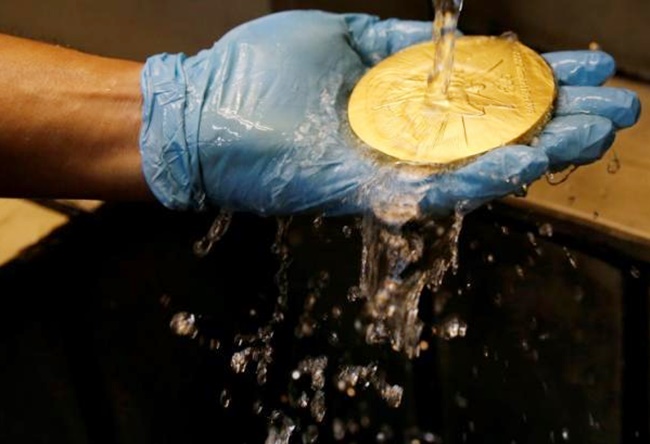Broken mirrors to X-ray plates - Olympic gold not what it seems.

Ask athletes what goes into Olympic gold medals, and they will likely say sweat and years of training.
For Brazil's National Mint the answer is simpler: recycled silver.
The 500-gram (17.6-ounce) Olympic gold medals that Usain Bolt, Michael Phelps and other athletes will be competing for in Rio de Janeiro are nearly 99 percent silver. They contain just 1.2 percent gold, mostly used as plating.
"It's a great honour and a great responsibility," said Victor Hugo Berbert, head of medal-making, as he showed Reuters around the mint in Rio de Janeiro.
Each of the 5,130 Olympic and Paralympic medals takes about 48 hours to make, said Berbert, who has an 80-strong team working shifts around the clock.
The medals are the most sustainable in Olympic history. Much of the silver is recycled from old mirrors and X-ray plates. The gold is free of mercury, which is often used to separate gold from ore and can poison local ecosystems if not carefully disposed of.
Nike, the winged goddess of victory in Ancient Greece, is minted on one side below the five Olympic rings, while the discipline for which the medal has been won is engraved along its edge. The other side bears the Rio 2016 logo.
"It's a sense of great satisfaction that our work will be worn on the chests of athletes who have given everything to win," said Nelson Neto Carneiro, who has worked at the mint for over 40 years.













 © 2025
© 2025